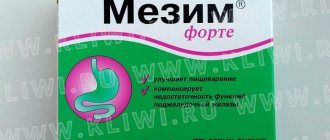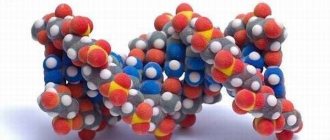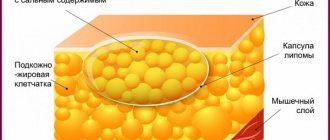Enzyme preparations are medicines that contain special substances (enzymes) necessary for the normal breakdown and absorption of proteins, fats and carbohydrates. As a rule, they are prescribed in the presence of diseases of the pancreas, the development of which disrupts the exocrine function of this organ. Enzyme preparations for the pancreas have different release forms (tablets, capsules, dragees, etc.) and price categories. However, they all act identically. The difference in these drugs is only in the amount of enzymes contained in one tablet or dragee, as well as the presence of excipients in them.
Why are enzyme preparations needed?
As already mentioned, enzyme-acting drugs are prescribed for violations of the exocrine function of the pancreas. It is disrupted as a result of the development of pathological processes in the organ (necrosis, inflammation, etc.), against the background of which the integrity of the gland cells is damaged, and they cease to produce the enzymes necessary to maintain digestion.
Unfortunately, without them, food cannot be digested properly, which leads to serious health problems. The patient often experiences nausea, vomiting, decreased appetite, constipation, etc. At the same time, there is an increased content of fat and pieces of undigested food in the stool. But that's not the worst thing.
With pancreatitis (inflammation of the pancreas), frequent pain attacks may occur, associated with serious disturbances in the functioning of the gland. Due to severe inflammation, its parenchyma swells, which causes compression of the excretory ducts and narrowing of their lumen. This entails a violation of the release of pancreatic juice and its stagnation in the organ. And since pancreatic juice contains enzymes, the gland begins to “eat” its own tissues, digesting them and provoking large-scale cell death.
This phenomenon often occurs against the background of errors in nutrition or lack of taking enzyme preparations, which help relieve the load on the pancreas. But it is precisely excessive loads that provoke the occurrence of acute inflammation in it.
Medicines containing enzymes have been on the pharmaceutical market for many years. They are made from bovine or pork pancreas, which contains digestive enzymes identical to humans.
Before the production of medicines, the raw materials are processed by freeze-drying, as a result of which only the necessary parts of pancreatin, containing digestive enzymes, are obtained. Among them are:
- amylase, without which the breakdown of carbohydrates cannot occur;
- protease necessary for protein digestion;
- lipase responsible for the breakdown of fats.
Enzymes for digesting food
These pancreatic enzymes are produced in insufficient quantities during pancreatitis and other diseases of this organ. And in order to prevent the occurrence of serious complications from the gastrointestinal tract, doctors use enzyme agents that replenish the deficiency of these substances in the body and improve the functioning of the digestive tract.
But, despite the fact that tablets containing pancreatin are safe for humans. Under no circumstances should they be taken without the knowledge of the attending physician. Firstly, they must be taken strictly according to the scheme, since their incorrect use can lead to serious disruptions to the gastrointestinal tract. And secondly, as noted above, such drugs have different dosages of active substances and must be selected strictly on an individual basis.
How much should you take
If pancreatic function deteriorates, enzymes must be taken for a long time, throughout life, to compensate for the lack of digestive enzymes.
Thanks to this treatment, a pronounced positive effect is achieved in the patient's condition. As a result of the action of the drug, flatulence disappears, stool normalizes, and appetite is restored.
Features of the use of enzyme preparations
The use of enzyme preparations in the presence of pancreatic diseases accompanied by impaired exocrine function should occur over a long period of time. If a person has been diagnosed with acute pancreatitis, their use is prescribed for a period of 6 to 12 months. If the patient suffers from chronic pancreatitis, which, unfortunately, cannot be treated, such drugs are recommended to be taken constantly.
Since the digestive enzymes included in these medications begin to act immediately after entering the stomach, they should be taken during or immediately after meals, 1-2 tablets (a single dosage is selected by the doctor, taking into account the course of the disease and individual characteristics organism). They should not be taken before eating! Remember this, as this may trigger a painful attack.
Important! If acute pancreatitis develops or if chronic pancreatitis worsens, you should also not take enzyme preparations! This will lead to increased pain and a deterioration in the patient’s general well-being!
A one-time use of enzyme-acting preparations is recommended if heartburn, nausea or a feeling of heaviness occurs immediately after eating. However, if these symptoms are observed systematically, it is necessary to check the functioning of the pancreas, since they most often occur in the initial stages of the development of diseases of the digestive tract (to check the functioning of the pancreas, it is enough to simply take a biochemical blood test at the clinic).
Digestion process
In addition, taking enzyme preparations is also recommended for the following conditions:
- various stomach diseases (ulcers, gastritis, etc.);
- pathologies of the gallbladder (for example, cholelithiasis);
- intestinal diseases;
- disorders of parietal digestion;
- functional dyspepsia.
Indications for the use of enzyme preparations are also operations during which partial or complete resection of the gallbladder or pancreas was performed in order to normalize the process of food digestion.
In what cases and when are enzymes prescribed?
Enzymes are used:
- for single use,
- for long-term treatment.
In case of food and alcohol load, it can be taken as required.
For continuous therapy, the medicine is selected individually, taking into account lipase activity. The effect is assessed by laboratory parameters (fecal elastase) and the patient’s condition. Taken into account:
- pain relief,
- stool (frequency and nature of bowel movements),
- weight.
No effect observed:
- with inadequate dosage,
- hyperacidity,
- with dysbacteriosis.
In case of severe hyperacidity, medications are used in parallel, the purpose of which is:
- block histamine receptors, providing a pronounced antisecretory effect,
- inhibition of hydrochloric acid in the stomach.
For this we use:
- H2 histamine receptor blocker (Famotidine),
- PPIs - proton pump inhibitors (Omez),
- antacid
The list of these medications is extensive; a specific drug is prescribed by a doctor. He will also explain how to take it correctly and how much to use over a certain period. When choosing, its mechanism of action is taken into account.
List of drugs
For pancreatic enzyme deficiency, the following drugs are most often used:
- Pancreatin,
- Mezim Forte,
- Creon 10000,
- Pezital,
- Wobenzym,
- Digestal and others.
Pancreatin
If we talk about which enzyme-acting drug is better, then we should immediately mention Pancreatin. It is sold in all pharmacies, and its price does not exceed 60 rubles. It contains pancreatin, which, as already mentioned, includes amylase, protease and lipase, which promote the digestion of proteins, fats and carbohydrates.
With the development of diseases of the pancreas, Pancreatin provides compensation for insufficiency of exocrine function and improves the process of food digestion. The dosage of the drug is prescribed individually depending on the patient’s age and the degree of development of the disease. The average dose for an adult is 150,000 units/day. If the patient has complete pancreatic dysfunction, the daily dosage is increased to 400,000 units/day.
The peculiarity of this drug is that it can be used even in small children. However, before this, you should definitely consult with your doctor, since taking Pancreatitis can provoke side effects, including:
- allergic reactions (rare);
- discomfort in the stomach;
- bowel dysfunction;
- perianal irritation (in case of overdose).
Mezim Forte
This enzyme preparation is more expensive than the previous one. Its average price is 190 rubles per package, which includes 20 tablets. The active ingredient in Mezim is also pancreatin. But besides this, it also contains auxiliary substances - anhydrous colloidal silicon dioxide, talc, E122 additives, sodium starch glycolate, MCC, macrogol, simethicone emulsion, titanium dioxide and polyacrylate dispersion.
Mezim has few contraindications. It should not be taken in case of acute pancreatitis and exacerbation of chronic pancreatitis, as well as in case of obstructive intestinal obstruction and in the presence of hypersensitivity to the excipients contained in the drug.
Important! The main raw material for the production of Mezim is pig fat. In some people it can cause a severe allergic reaction, so you should never take the drug without first consulting a specialist!
For minor disturbances in the functioning of the pancreas, Mezim is recommended to be taken in the amount of 1-2 tablets with meals. For complete organ dysfunction - 2-4 tablets. The maximum daily dosage is 20,000 units/kg.
Creon 10000
The price of this enzyme preparation in pharmacies is approximately 270–300 rubles. Its composition includes:
- the main active ingredient is pancreatin;
- excipients - macrogol, cetyl alcohol, hypromellose phthalate, triethyl citrate, dimethicone.
Important! Creon 10000 is recommended for the treatment of pancreatic disease in adults. It is rarely prescribed to children, since due to the increased content of lipase, the drug often causes constipation in them.
As for side effects, when taking this drug, abdominal pain, flatulence, diarrhea, nausea and vomiting may occur. The appearance of fibrosing colonopathy, urticaria, and hyperuricosuria is also possible.
The maximum daily dosage of Creon 10000 is 10,000 units/kg. It cannot be taken in case of individual intolerance to the components, acute pancreatitis or exacerbation of chronic pancreatitis.
Penzital
Penzital is the cheapest enzyme preparation, the average cost of which does not exceed 40 rubles per package (20 tablets). In addition to pancreatitis, it contains the following excipients:
Medicines for pancreatitis
- lactose;
- talc;
- sodium starch glycolate;
- cellulose;
- povidone;
- titanium dioxide;
- colloidal silicon dioxide;
- methacrylic acid copolymer.
As in previous cases, Penzital should not be taken if there is hypersensitivity to the components of the drug, acute or exacerbated chronic pancreatitis. In all other cases, this medication can be taken without any fear, but only according to the prescribed regimen.
Important! Penzital can be used to treat pancreas in children. But in no case should you exceed the dosage of the drug yourself, as this can lead to constipation in the child.
This drug is relatively safe. Side effects in the form of skin rashes, nausea, vomiting, abdominal pain, hyperuricosuria, etc., are extremely rare when taking it.
The average dosage of Penzital for an adult is 150,000 units/day. If complete pancreatic dysfunction is observed, the dosage is increased to 400,000 units/day. The maximum daily dosage of the drug is 15,000 units/kg. For children under 1.5 years old, the maximum dosage of Penzital is 50,000 units/day, for children over 1.5 years old – 100,000 units/day.
Wobenzym
This drug does not belong to cheap enzyme preparations, since its cost varies from 400 rubles. up to 1700 rub. depending on the number of tablets in one package. However, Wobenzym is recognized as the most effective and best enzyme preparation, since it contains several active components:
- pancreatin;
- rutoside;
- bromelain;
- trypsin;
- papain;
- chymotrypsin.
Additional components include talc, corn starch, purified water, colloidal silicon dioxide, stearic acid, lactose and magnesium stearate. The composition is rich, but in this regard, this drug, in addition to acute and aggravated chronic pancreatitis, has other contraindications, including:
- all pathologies, the development of which has a high risk of internal bleeding;
- children under 5 years of age;
- hemodialysis;
- hypersensitivity to active or additional substances of the drug.
The advantage of Wobenzym is the complete absence of side effects. Only in isolated cases may allergic reactions occur if the drug is taken in the presence of contraindications, or the appearance of minor deviations in the smell and color of stool.
This drug is used in medicine for various purposes and its dosage is selected individually. But if we talk about diseases of the pancreas, it is usually prescribed in the amount of 1-2 tablets during or after meals.
The real cause of chronic pancreatitis
It is chronic enzyme deficiency that is the real cause of long-term pancreatitis, which leads to digestive disorders and the development of general digestive disease.
Why are too few enzymes released that are unable to digest food? How does enzyme deficiency occur?
As you know, an attack of acute pancreatitis first occurs. Enzymes that are capable of digesting everything in the world, including pancreatic tissue, are stored in it in an inactive form, but are activated when they exit into the duodenum. But if a disturbance occurs (for example, when drinking alcohol), then a backflow of active enzymes occurs into the gland, and it begins to self-digest. At this time, pain occurs, and the gland cells that produce enzymes begin to die. As a result of an acute illness, they are replaced by scar tissue, and the gland simply cannot produce as many enzymes as before.
You need to know that the pancreas is not a liver, and it cannot regenerate. Therefore, it is possible that for the rest of your life, a disease such as acute pancreatitis will require enzyme replacement therapy. When are they prescribed?











